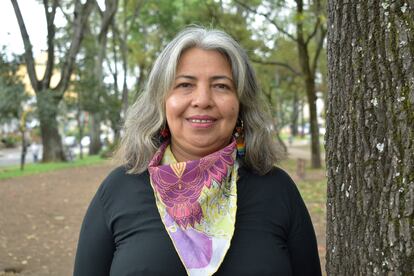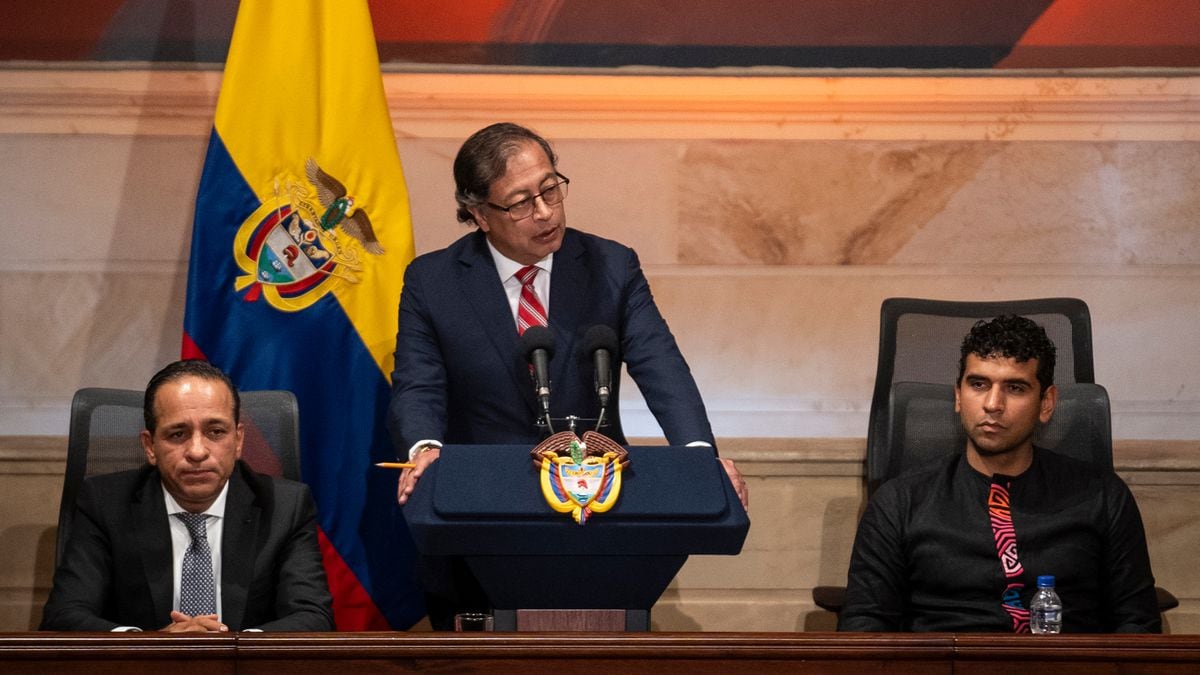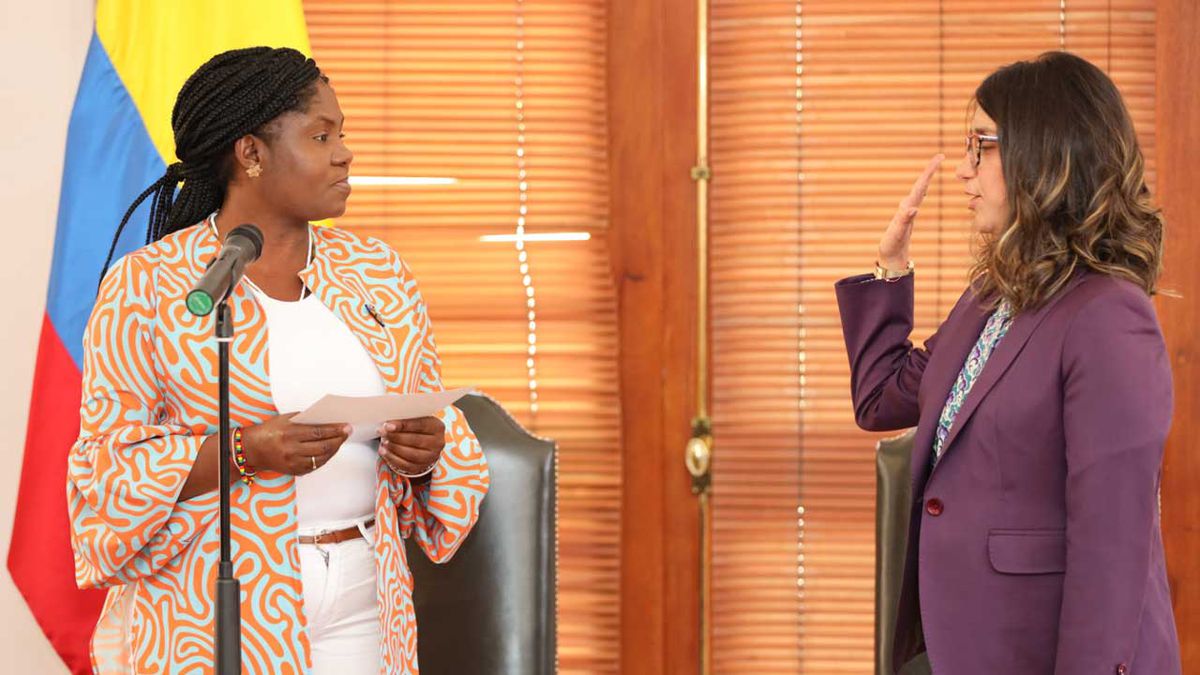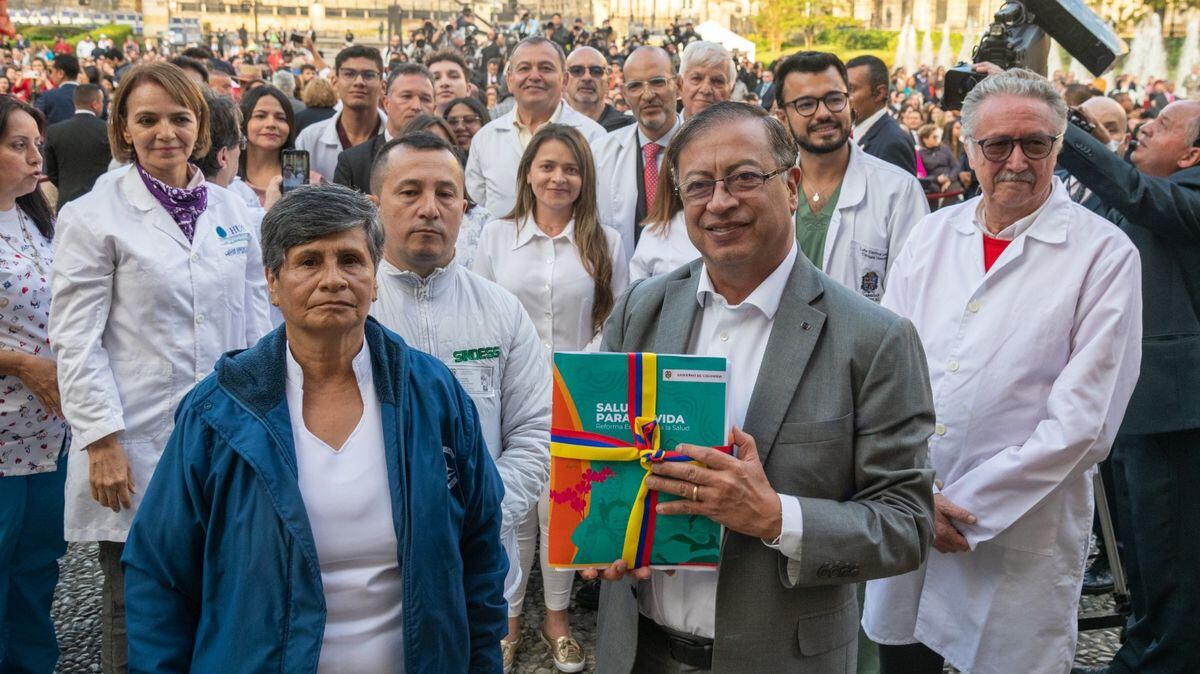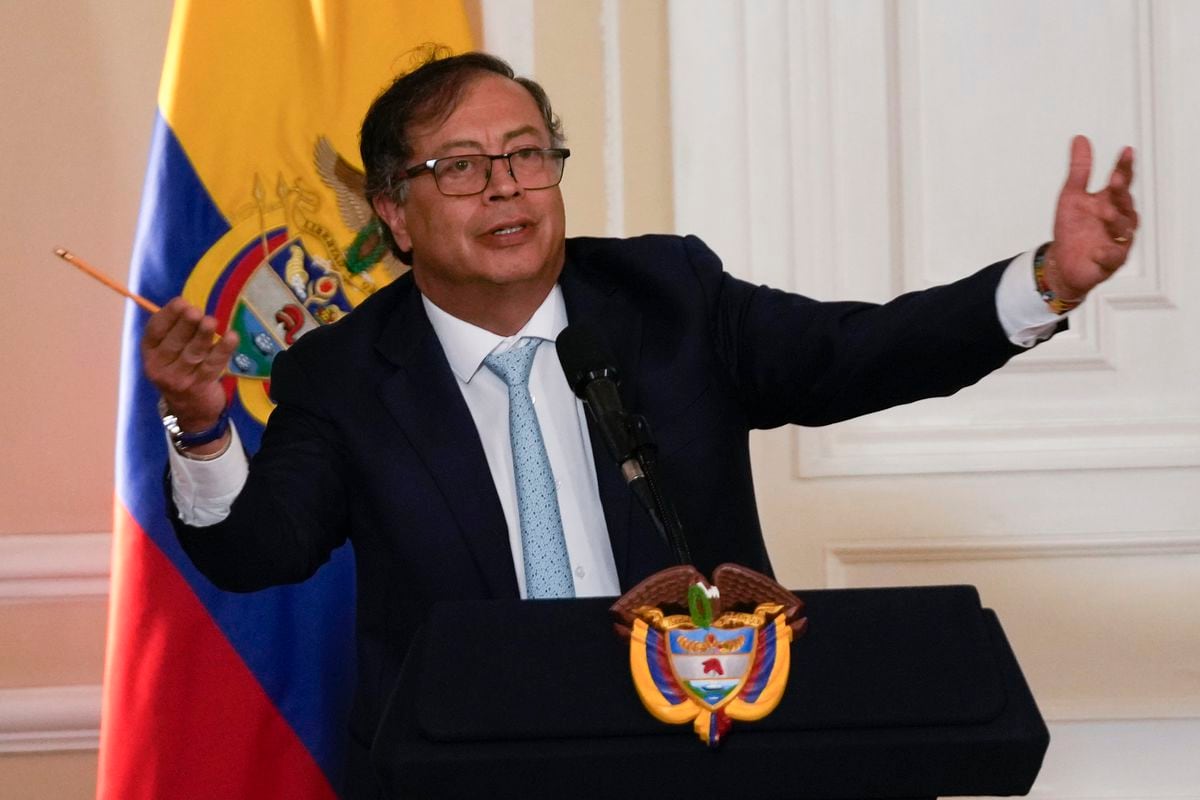A part of the women of the group that seeks to reach the Congress of ColombiaWe are ready
"And you guys are ready?" The question that many women in Colombia heard for years when they sought to run for political office has found a forceful answer in a feminist movement that, for the first time in the country's history, is running for Congress. They called it We Are Ready as an affirmation of that questioning made so many times with sarcasm. "Of course we are ready to govern this country," says Magaly del Carmen Belálcazar, a peasant woman from the Colombian Amazon who is part of this movement without affiliation to any party.
This environmentalist who has spent years defending equal land for women and the environment in the south of the country, says that she was ready a long time ago, but only now does she dare to do it since the electoral process. “Everything we do is political, from sowing, harvesting, social mobilization. When I entered the movement I began to reflect on why if we are the ones who defend the territory and life, we gave in to others deciding for us," she tells EL PAÍS.
We are Ready emerged in Medellín in 2017, a few months after the plebiscite for peace in which the 'No' to the Agreements between the government and the FARC triumphed. That sadness that the result produced for a group of women from the city, which in Colombia is known as
plebitusa
, made them make a decision: they would occupy more spaces of power in political life to influence key decisions in Medellín. They brought together more than 2,000 women and collectively ran for City Council.
While one of them, Dora Saldarriaga, won a seat in that space of local politics, from other regions they began to request entry to the movement. The image, which consists of an owl with open wings and the colors violet and yellow and the traditional guayacán tree of Medellín and represents the struggle of women, has since become known throughout the country. In 2021, they decided to establish themselves as a national movement, collecting 90,000 signatures and obtaining the endorsement of the National Registry to run for the Senate elections on March 13.
In Colombia there is an "underrepresentation of women in Congress", says the report
Women and men: gender gaps in Colombia,
by UN Women, the Presidential Council for Women and the National Administrative Department of Statistics (DANE), which presents a detailed overview of the economic, educational and violence against women situation in Colombia between 2008 and 2019. Inequality is evident in the House of Representatives (Lower House), where of the 171 seats only 32 are occupied by women; something similar to the Senate, which out of 108 seats, only has 23 occupied by women.
“In the Colombian Congress, the representation rate of women is 19.7%, 10 percentage points below the average representation of Latin America and the Caribbean, which stands at 29.7%. It is also far from the world average of 24.5%, therefore it ranks 119th in the international classification of the Inter-Parliamentary Union (IPU, 2020). Consequently, the Colombian Congress is far from the 30% quota established by the country itself, and even further from the parity proposed by the SDGs at the global level,” the document says.
“It is the first feminist movement defined and organized as feminist that makes this great commitment without any type of party or alliance and outside the center and left coalitions,” explains Marta Restrepo, one of its founders. This social worker defends the diversity of feminisms, an issue that has been at the center of the discussion in the Colombian elections after the left-wing candidate Gustavo Petro said that he only recognizes popular feminism and criticized the "intellectual feminism of the cities ”.
“Beyond giving that discussion in the voice of a man, we show that we can work together. In our movement there are peasant women, with doctorates, single mothers, others doing their university studies”, says Restrepo. So far there are 1,700 affiliated women who are in 150 places in Colombia and 28 countries.
In the same way that they did it to the Medellin Council, any of the 1,700 women could apply for the Congress list.
The selection was made in plural form and through a digital vote and according to the votes that each one obtained, the order of the list was established.
Magaly was one of those who obtained a space.
“In Colombia it is difficult to participate in politics without being the son or daughter of a cacique or without having a godfather.
That is why a peasant woman like me can apply speaks of the importance of the collective work of this movement”.
Magaly Belálcazar, candidate for the Senate for the We Are Ready movementWe Are Ready
So they made a list of 11 candidates.
"They are women in all their diversity, sexual dissidents, Afro-descendants, palenqueras [descendants of slaves], and departments underrepresented in Congress, from areas where traditional politicians only go to ask for votes in the campaign," says Restrepo.
But there are also some men.
To be endorsed, the movement had to meet the gender quota required in the country, but this time in reverse.
"There are five men who are allies and are there at the end of the list without claiming prominence," recalls the founder.
And they are also from different origins: there is a father of a family or a musician, among others.
Although they define themselves as a feminist movement, they do not claim only a "purely women's agenda" in Congress.
They point out that the agenda is for a new humanity that puts care for the lives of all people at the center.
"We believe that women are not emancipated alone but with their communities," adds Restrepo.
At the center of their agenda is the search for economic and power redistribution, but they are strongly committed to the implementation of the peace accords in a country where the war has left millions of victims, many of them women.
“For us it is important to defend land tenure and the demilitarization of women's bodies because where I come from, a cow has more rights than a woman,” says Belálcazar.
Feminism has thus become a determining issue in current Colombian politics.
“There is a growing feminist movement in the country for women made up mostly of young people, sexually dissidents.
The country is ripe to address equal rights among those of us who are historically excluded”, concludes Restrepo.
Subscribe here to the EL PAÍS América newsletter and receive all the key information on current affairs in the region

